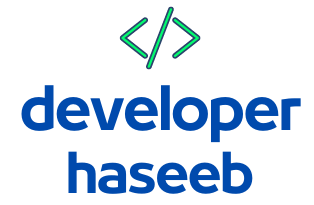Blogging has become a popular way to share information, express creativity, and even earn a living. But what exactly is a blog? In simple terms, a blog is a type of website where the content is presented in reverse chronological order, with newer posts appearing first. Blogs can cover any topic, from personal experiences to professional advice. So, why start a blog? Besides sharing your passion with the world, a blog can also be a lucrative venture if done correctly.
Table of Contents
ToggleChoosing a Niche
Selecting a niche is one of the most crucial steps in starting a blog. A niche is a specific topic or area that you will focus on. The importance of a niche lies in attracting a dedicated audience who shares an interest in your subject matter. To find your niche, consider your passions, expertise, and the topics you enjoy discussing. Research your chosen niche to ensure there is an audience for it and that it’s not overly saturated.
Setting Up Your Blog
Once you’ve chosen your niche, it’s time to set up your blog. Start by choosing a blogging platform. WordPress.org is a popular choice due to its flexibility and customization options. Next, select a domain name that reflects your blog’s identity. This is your blog’s address on the internet, so make it catchy and relevant. Finally, choose a hosting provider to store your blog’s data and make it accessible online. Bluehost and SiteGround are excellent choices for beginners.
Designing Your Blog
Design plays a significant role in attracting and retaining visitors. Begin by selecting a theme that matches your blog’s style and niche. Many blogging platforms offer free and premium themes. Once you’ve chosen a theme, customize your blog to reflect your brand. This includes your blog’s layout, color scheme, and logo. A well-designed blog is visually appealing and easy to navigate, enhancing user experience.
Creating Content
Content is the heart of your blog. High-quality content attracts readers and keeps them coming back. Focus on creating informative, engaging, and original posts. Vary your content by including different types of blog posts, such as how-to guides, listicles, and personal stories. To stay organized, create a content calendar to plan your posts in advance, ensuring you post regularly.
SEO Basics
Search Engine Optimization (SEO) is essential for driving traffic to your blog. SEO involves optimizing your blog so that it ranks higher on search engine results pages. Start with keyword research to find terms your audience is searching for. Incorporate these keywords naturally into your posts. Use on-page SEO techniques, such as optimizing your titles, headers, and meta descriptions, to improve your blog’s visibility. Tools like Ahrefs and SEMrush can help in keyword research and analysis.
Promoting Your Blog
Promotion is key to growing your blog’s audience. Leverage social media platforms like Facebook, Twitter, and Instagram to share your posts and engage with your audience. Guest posting on other blogs in your niche can also help attract new readers. Networking with other bloggers through comments, forums, and social media can further boost your blog’s visibility.
Monetizing Your Blog
There are several ways to earn money from your blog. Affiliate marketing involves promoting products or services and earning a commission for sales made through your referral links. Display ads, such as those from Google AdSense, pay you based on the number of impressions or clicks they receive. Sponsored posts are paid articles that promote a company or product. Lastly, consider selling your own products or services, such as eBooks, courses, or consulting services.
Building an Audience
Building a loyal audience takes time and effort. Engage with your readers by responding to comments and emails. Encourage readers to subscribe to your email list to receive updates and exclusive content. Foster a sense of community by inviting feedback and discussions.
Analyzing Your Blog’s Performance
Regularly analyze your blog’s performance to understand what’s working and what needs improvement. Use tools like Google Analytics to track your traffic, identify your top-performing posts, and understand your audience demographics. Analyzing your traffic sources and engagement metrics will help you refine your content and marketing strategies.
Staying Consistent and Motivated
Consistency is key to blogging success. Set realistic goals for your blog, such as a posting schedule or traffic targets. Overcoming writer’s block can be challenging, but techniques like brainstorming, taking breaks, and staying inspired by reading other blogs can help. Celebrate small milestones to stay motivated on your blogging journey.
Legal Considerations
As a blogger, it’s important to be aware of legal considerations. Ensure that you understand copyright laws to avoid using others’ content without permission. Always disclose sponsored content and affiliate links to maintain transparency with your readers. Having a privacy policy and terms of service on your blog is also essential to comply with regulations and protect your readers’ information.
Tools and Resources for Bloggers
Numerous tools and resources can make blogging easier and more effective. Content creation tools like Grammarly and Canva can help you produce high-quality posts. SEO tools like Ahrefs and SEMrush can enhance your keyword research and optimization efforts. Social media management tools like Buffer and Hootsuite can streamline your promotion efforts.
Success Stories
Learning from successful bloggers can provide inspiration and insights. Study case studies of top bloggers in your niche to understand their strategies and challenges. Many successful bloggers share valuable lessons on their websites or through interviews, offering practical advice for aspiring bloggers.
Conclusion
Starting a blog and earning money from it is a rewarding journey that requires dedication and strategic planning. By choosing the right niche, creating high-quality content, and promoting your blog effectively, you can build a successful blog. Remember, consistency and engagement with your audience are key to long-term success. Happy blogging!
[sp_easyaccordion id=”506″]







